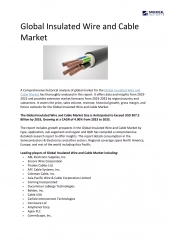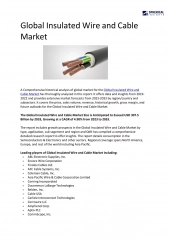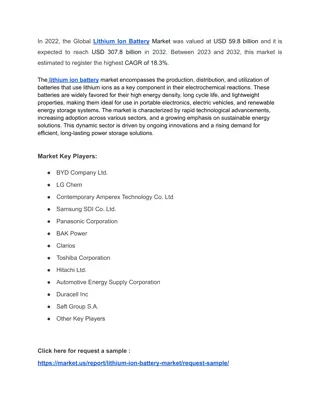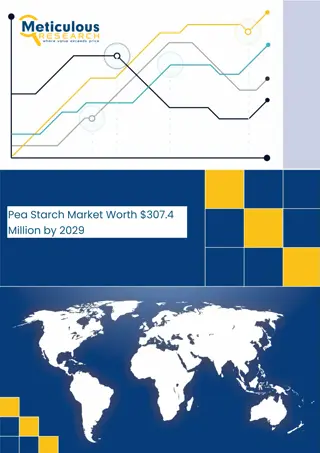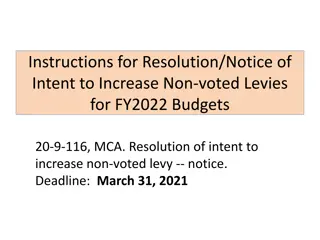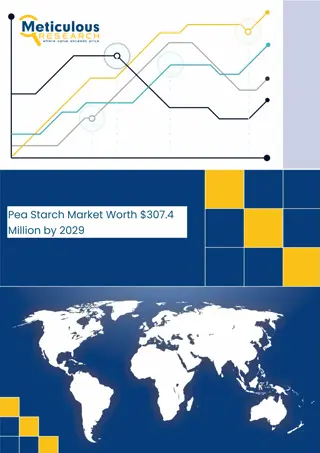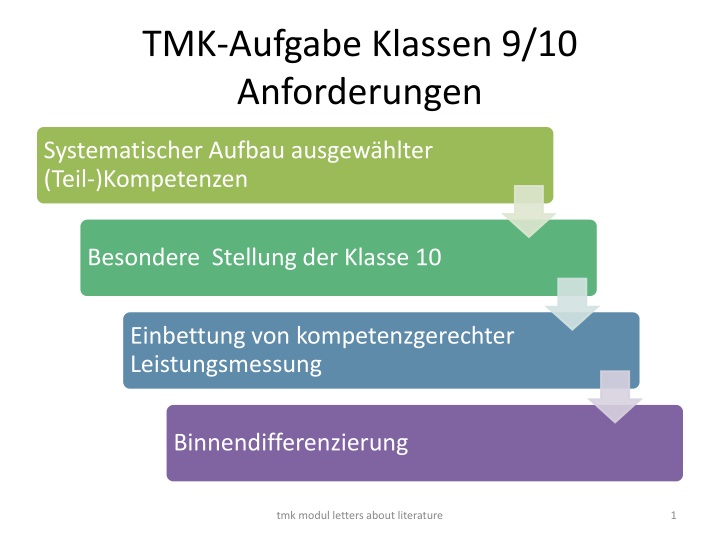
Systematic Development of Selected Competencies in Literature Studies for Grades 9/10
Explore the structured development of key competencies in literature studies for grades 9 and 10, focusing on analyzing texts, writing reader response letters, and progressing through different literary genres. Integration with classroom materials and independent learning emphasized.
Download Presentation

Please find below an Image/Link to download the presentation.
The content on the website is provided AS IS for your information and personal use only. It may not be sold, licensed, or shared on other websites without obtaining consent from the author. If you encounter any issues during the download, it is possible that the publisher has removed the file from their server.
You are allowed to download the files provided on this website for personal or commercial use, subject to the condition that they are used lawfully. All files are the property of their respective owners.
The content on the website is provided AS IS for your information and personal use only. It may not be sold, licensed, or shared on other websites without obtaining consent from the author.
E N D
Presentation Transcript
TMK-Aufgabe Klassen 9/10 Anforderungen Systematischer Aufbau ausgew hlter (Teil-)Kompetenzen Besondere Stellung der Klasse 10 Einbettung von kompetenzgerechter Leistungsmessung Binnendifferenzierung tmk modul letters about literature 1
TMK-Aufgabe Klassen 9/10 W nsche Anbindung an das Lehrwerk Variabel einsetzbar Ausgleich Schw chen Lehrwerk tmk modul letters about literature 2
Beobachtungen - Lehrwerke TMK insgesamt gut abgedeckt Sehr gut abgedeckt: Texte analysieren und kommentieren (auch diskontinuierliche Vorlagen, auch H rtexte) Eingeschr nkt abgedeckt: TK 7 Wirkweise von Texten TK 8 Merkmale identifizieren und bei eigener Produktion anwenden tmk modul letters about literature 3
Ergebnis der berlegungen Letters About Literature (Fiktive) Teilnahme an einem Wettbewerb der Library of Congress. Brief an einen Autor ber eine pers nliche Leser-Reaktion (reader response). Ausgangspunkt: behandelter literarischer Text (auch Exzerpte m glich) S analysieren Briefe von Preistr gern und verfassen dann selbst Briefe (im Team und individuell) tmk modul letters about literature 4
Anforderungen erfllt? Lehrwerk Anbindung an jedes Lehrwerk/jedes literarische Genre m glich Merkmale von Textsorten identifizieren, bei der eigenen Produktion anwenden variabel einsetzbar Progressiver Aufbau der TK, die in den Lehrwerken als Schwachstelle identifiziert wurde Lehrwerksunabh ngige Durchf hrung m glich tmk modul letters about literature 5
Die Einheit setzt voraus, dass ein literarischer Text behandelt wurde In Anbindung an das Lehrwerk Lehrwerksunabh ngig Hier: Jordan Sonnenblick: Notes from a Midnight Driver Context Starter: Focus on Literature Ganzschrift, Drama, Short Story, Gedicht, . Film Green Line Transition: Have a good read Book Clubbing Camden Town Advanced: Analyzing fictional texts tmk modul letters about literature 6
Anforderungen erfllt? Besondere Stellung Klasse 10 - Textsorte: Ausgangstext Differenzierte Analyse eines Textes ist eine zentrale Voraussetzung f r die erfolgreiche Bew ltigung der Anforderungen in der Kursstufe Hier: literarischer Ausgangstext und letters Sprachliche Mittel Inhalt Struktur tmk modul letters about literature 7
Anforderungen erfllt? Besondere Stellung Klasse 10: Textsorte: Zieltext Writing a letter takes time, not just to put the words into sentences, but to think about what to express and how to express it. Letters have attitude! They can be persuasive, argumentative or deviously clever, even downright funny. But they can also be diplomatic, encouraging, comforting. A letter demands thoughtfulness and patience, for the writer must select just the right words to convey his or her thoughts. Most important, writing a letter requires an understanding of the person to whom you are writing. A letter is a personal, private relationship between the writer and the reader. The Library of Congress Sorgf ltiges Arbeiten beim Schreibprozess ist zentrale Voraussetzung f r Bew ltigung der Anforderungen in der Kursstufe Textsorte ist auch einsetzbar beim literarischen Schwerpunktthema im Abitur tmk modul letters about literature 8
Anforderungen erfllt? 1 Systematischer Kompetenzaufbau/Progression/ 2 Einbettung kompetenzgem er Leistungsmessung Ansatz: generisches Lernen 1 Building the context Einf hrung Transfer 5 Linking to related texts 2 Modelling the text Analyse Writing (individuell) a) als Hausaufgabe b) als Klassenarbeit Writing (gemeinsam) a) traditionell b) in Foren 4 Independent construction of the text 3 Joint construction of the text tmk modul letters about literature 9
Letters About Literature - Progression 1 Stunde 2-4 Stunden 2-4 Stunden 1 Stunde Books can give you wings What we can learn from prize-winners Writing a letter together Thinking about the genre Transfer Einf hrung Analyse Writing tmk modul letters about literature 10
Verbindung Behandlung eines literarischen Textes Letters About Literature Variante A Variante B Variante C Behandlung eines lit. Textes Einf hrung Analyse Writing Transfer Einf hrung Behandlung eines lit. Textes Analyse Writing Transfer Einf hrung Analyse Behandlung eines lit. Textes Writing Transfer tmk modul letters about literature 11
Generisches Lernen als Chance sprachlich-diskursive und kulturell-soziale Ger ste einer sprachlichen Interaktion erkennen und anwenden k nnen Differenzierung Modelltexte auf 3 Levels Sprach- liche chunks IKK Kulturelle Konventionen Mittel TMK Progression tmk modul letters about literature 12
Bildungsplanbezug TMK Reading Writing BP 2016 IKK Sprachl. Mittel tmk modul letters about literature 13
Bildungsplanbezug IKK Kompetenzbeschreibung Aufgrund ihres Wissens um zielkulturelle Konventionen k nnen die S in Kommunikations- situationen angemesssen agieren und ihr eigenes sprachliches Verhalten in Ans tzen reflektieren. Letters About Literature, Analyse Writing a letter Feedback-Runde/Transfer tmk modul letters about literature 14
Bildungsplanbezug IKK - TK 3 Die S k nnen . Kommunikations- konventionen beachten (z.B. sprachliche Signalisierung von N he und Distanz, Kritik, Widerspruch, differierende Meinungen unter Vermeidung von Direktheit u ern) Diese Kriterien kommen in der gew hlten Textsorte zum Tragen tmk modul letters about literature 15
Bildungsplanbezug sprachliche Mittel Lexik, v.a. TK 2 und TH 3 Frequente Verbkonstruktionen Sinnzusammenh nge Argumente darlegen, Stellungnahme, respektvolle Kritik Ausf hrlichere formelle Korrespondenz verfassen Komplexe Beschreibungen verfassen Personen und deren beziehungen/Haltungen charakterisieren Grammatik, v.a. TK 1,3 und 7 Auf abstrakte Begriffe Bezug nehmen (hier: Themen der Romane ) Komplexe S tze und Sinnzusammenh nge (hier: participles, gerunds, ) Passive voice (hier z.B. I am moved by your writing ) tmk modul letters about literature 16
Weiteres Vorgehen bei der Darstellung/Evaluation der 4 Teile der Unterrichtseinheit Was? Warum? Wie? Darstellung der Powerpoint-Pr sentation f r den Unterricht Sichtung der Materialien und professioneller Austausch in Gruppen / im Plenum tmk modul letters about literature 17
Mgliche Leitfragen fr den professionellen Austausch Ist alles verst ndlich? Was ist unverst ndlich? Passt dies zu 10.Kl sslern, die ich kenne? Inwiefern profitieren die S von dieser Stunde? K nnte ich diese Stunde so im Sprengel vorstellen? Was w rde ich ndern? . tmk modul letters about literature 18
bersicht ber die Materialien: 300er Nummern Der Unterricht 302 Einf hrung 306 Material bersicht 303 Analyse 300 Startseite 307 Diese Pr sentation 304 Writing 301 Vorbemerkungen 308 SuS-Produkte 305 Transfer 307 Eventuell f r die Sprengelfortbildung Theoretische/didaktische Anmerkungen tmk modul letters about literature 19
(Zu) viel Material? Aber Worksheets zur Auswahl, teilweise aus dem Fundus der Library of Congress (Link) Scaffolding f r die Analyse, Worksheets f r das Schreiben Briefe auf 3 Levels Amber l (Ambers Brief) Amber a (Analyseraster dazu) Briefe zur Analyse 303.3 Feedback- Sheets Viele Auswahl- m glichkeiten: Differenzierung Verschiedene M glichkeiten f r self evaluation und peer evaluation, teacher evaluation tmk modul letters about literature 20
Materialbersicht: Der Unterricht 302 303 Analyse 304 Writing 305 Transfer Einf hrung 302.1 Pr sentation f r den Einsatz im Unterricht 302.2 Verlauf: Teachers Manual 303.1 Pr sentation f r den Einsatz im Unterricht 303.2 Verlauf: Teachers Manual 303.3 Letters Scaffolding, Worksheets, Solutions 304.1 Pr sentation f r den Einsatz im Unterricht 304.2 Verlauf: Teachers Manual Scaffolding, Worksheets 305.1 Pr sentation f r den Einsatz im Unterricht 305.2. Verlauf: Teachers Manual Worksheets tmk modul letters about literature 21
Darstellung der Unterrichtseinheit Einf hrung: Books can give you wings Warum? S reflektieren ber den Einfluss von Literatur auf (sie als) Leser S werden mit der Task vertraut gemacht Step by step Beschreibung: 5 steps Setting the context: Situation, Handlungsziel, Adressat, kulturelle Konventionen Motivation Was? Wie? tmk modul letters about literature 22
Wie 1 Viewing: Hazel and Augustus what books mean to them 2 What books mean to us 3 Viewing: Meeting Peter van Houten 4 A Personal Letter from Lois Lowry what books mean to Lois Lowry (optional) 5 Letters About Literature the contest tmk modul letters about literature 23
John Greene, The Fault in Our Stars (2012) Hazel Grace, a 16-year- old girl with cancer that has spread to her lungs Augustus, a 17-year- old ex-basketball player and amputee (his right leg has been replaced with a prosthetic) tmk modul letters about literature 24
Viewing: Find out why books are important for Hazel and for Augustus Hazel An Imperial Affliction by Peter Van Houten Augustus The Price of Dawn tmk modul letters about literature 25
wings brain and heart Some books challenge your brain. Others touch your heart. Some books do both! What book have you read lately that made you think about things you never thought about before? Are there any characters from books that made you laugh out loud, or shake your head, ..? Books can give you wings to understand the world around you and they can help you cope with difficult situations. What book have you read recently that gave you wings of courage, of understanding, of hope .? tmk modul letters about literature 26
Viewing: The Clash Find out why the meeting is a complete disaster. Which clashes or misunderstandings can you identify? Hazel and Augustus Peter Van Houten tmk modul letters about literature 27
Literature and a persons response to it Are books more than entertainment? Are they windows to understanding our society, other cultures and ourselves? Worksheet: A Personal Letter from Lois Lowry tmk modul letters about literature 28
Letters About Literature Library of Congress Contest tmk modul letters about literature 29
Students enter LAL Contest by writing a letter to an author living or dead explaining how the author s work somehow changed their view of the world or of themselves. Students write honestly and in their own voice, as if they were having a conversation with the author. 3 levels (state / national) tmk modul letters about literature 30
How to enter Strong feelings How and why are you different now? Personal, persuasive reflection Persuade Write a personal letter to the author Read Select a book Reflect Think before you write Write Type your entry Send Mail your letter tmk modul letters about literature 31
Mgliche Leitfragen fr den professionellen Austausch Ist alles verst ndlich? Was ist unverst ndlich? Passt dies zu 10.Kl sslern, die ich kenne? Inwiefern profitieren die S von dieser Stunde? K nnte ich diese Stunde so im Sprengel vorstellen? Was w rde ich ndern? . tmk modul letters about literature 32
Analyse: What we can learn from prize-winners Warum? Step by step Beschreibung 5 steps S analysieren und kommentieren ausgew hlte Beispiele pr mierter Briefe Generic awareness: Bewu tmachung der Formen, Strukturen und Regelm igkeiten Modellierung eines Ger stes f r die Textproduktion Was? Wie? tmk modul letters about literature 33
Wie? 1 Prize-winners and their topics 2 What we can learn from our letter? 3 Our opinion counts 4 What we can learn from all these letters 5 Our tips for future prize-winners tmk modul letters about literature 34
Letters About Literature: National Winners You choose Laura s Letter Devi s Letter Jisoo s Letter K.J. Rowling, Harry Potter love can save the world George Orwell, 1984 dystopias are built around us Anne Frank, The Diary of Anne Frank You dared to dream tmk modul letters about literature 35
Letters About Literature: National Winners You choose National Winners Contest Sarah s letter Macoy s letter Dorothy Parker, Penelope (poem) celebrate our she- roes Marie Lu, Legend This book taught me lessons about my criminal life tmk modul letters about literature 36
Genre Learning: Model Texts Analysis 1 (WS 1: individual letters) In groups of three, read and analyze the letter you have chosen. Each of you should focus on one of the following aspects and then share your results with your team members. What language devices does the writer use? How does the paragraph contribute to developing the thesis? Textual coherence/ purpose Language Content What is the para- graph about? tmk modul letters about literature 37
Examples Help (scaffolding) is available if needed Content Textual coherence Language You brought to my attention that Experience of gender inequality in team sports. The reader s response to the poem: insight Relevant evidence to support the point of view. I now realize Your poem has inspired me to look more deeply into .. tmk modul letters about literature 38
Personal response/Critical evaluation To what extent do you like/dislike your letter? Please discuss this with your team, then with the rest of the class. tmk modul letters about literature 39
Learning from Others: Model Texts Analysis 2 (WS 2: all of these are letters grouped according to categories) In groups, gather the results from the different letters. Identify structural elements which come up in several letters. Identify their function. Select and cluster chunks which are helpful for writing a LAL Textual coherence and its purpose Language What are the writers writing about? Identify similarities and differences. Content tmk modul letters about literature 40
Your findings: Tips Give advice to somebody who doesn t know how to structure his/her letter who doesn t have a clue what to write about who can t think of any good language to use tmk modul letters about literature 41
Mgliche Leitfragen fr den professionellen Austausch Ist alles verst ndlich? Was ist unverst ndlich? Passt dies zu 10.Kl sslern, die ich kenne? Inwiefern profitieren die S von dieser Stunde? K nnte ich diese Stunde so im Sprengel vorstellen? Was w rde ich ndern? . tmk modul letters about literature 42
Textproduktion: Writing a letter together Warum? Step by step Beschreibung: 6 steps S entwerfen, schreiben und optimieren ihren Brief in Gruppen Culminating task kann realisiert werden aufgrund des erarbeiteten Ger stes Vorteile des collaborative writing Was? Wie? tmk modul letters about literature 43
Wie? 1 Thinking about the writing process. 2 Brainstorming What could we write about? 3 Writing an outline: the process of clustering, choosing and grouping your ideas into an outline of what you are actually going to write about. 4 Thinking about the quality of the text Let s get the same help as the American prize-winners get. Write a second draft of your outline. 5 Writing at long last! 6 Giving and getting feedback tmk modul letters about literature 44
Thinking about writing 1. Tick the statements that are true for you. 2. Explain your answers to your partner. Justify what you have ticked. Please give examples. 3. With the entire class: discuss the roles and responsibilities students and teachers have in the writing process. tmk modul letters about literature 45
Brainstorming What could we write about? Thoughts and Emotions Just imagine ..for the more analytical students .for the more creative students tmk modul letters about literature 46
What are we actually going to write about? write a draft of your first outline arrange choose cluster tmk modul letters about literature 47
Thinking about the quality of your text Mandatory, e.g. Optional, e.g. WS 1 Writing to an author rather than just complimenting him/her WS 3 How to hook the reader in 25 words tmk modul letters about literature 48
Collaborative writing collaborative individual collaborative tmk modul letters about literature 49
Feedback Self evaluation Peer evaluation Teacher evaluation tmk modul letters about literature 50

